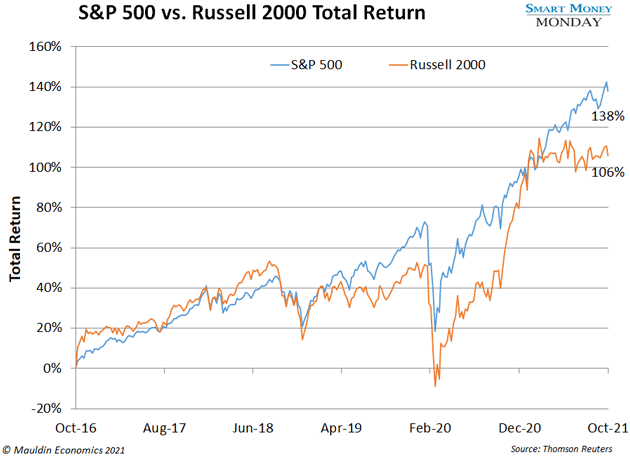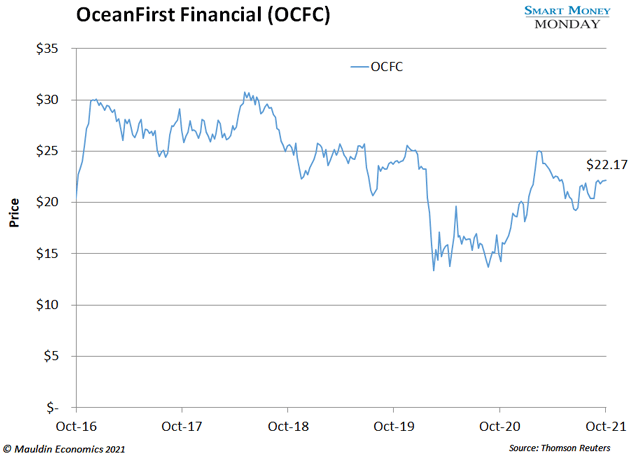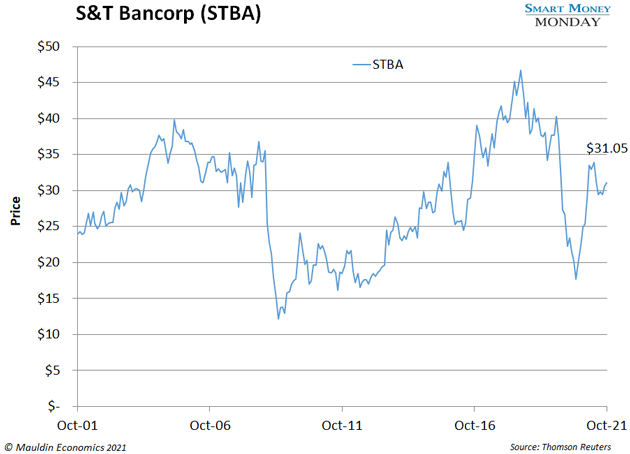There’s a reason I’m always pounding the table about small-cap stocks…
They’re often the fastest-growing companies and the most underpriced. That makes small caps a great place to hunt for extraordinary gains.
So, I’m not surprised when readers ask, “Can’t I just buy a small-cap index fund?”
| | | | | | LIVE Q&A with Jared Dillian! Eminent Wall Street veteran & host of the new BE SMART podcast Jared answers all of your questions about money—
What to do with the money you have.
How to get the money you want.
And how to avoid the big mistakes that could trap you. Wall Street turns to Jared for answers. Now you can, too.
Tune in for this LIVE special event—Monday, November 15th at 1 pm ET 
| | | | | |
|
The Russell 2000 is the main small-cap index. It consists of the smallest 2,000 stocks in the Russell 3000. Meaning it’s more or less the smallest two-thirds of the stock market.
There are several easy-to-buy funds that track the index. So, that’s how many investors get small-cap exposure.
The problem is, the Russell 2000 has only done so-so for the last five years. It’s risen 106%, which isn’t terrible. But it’s worse than the overall market, which has climbed 138%.

That’s the trouble with buying the whole index. You spread your bet across 2,000 companies. So, you get the high-growth small caps you want. But you also get a lot of garbage. And the combination hands you ho-hum returns.
Like OceanFirst Finanancial (OCFC), for example. It’s a New Jersey-based community bank, and I’m sure it’s a perfectly fine company. But the stock, which is part of the Russell 2000, has gone nowhere in the past five years.

The Russell 2000 is full of stocks like OceanFirst. In fact, 22% of the index is banks, REITs, and financial stocks. These are rarely high-growth companies. And growth is what you need for higher returns.
Just look at Pennsylvania-based S&T Bancorp (STBA). Again, it’s probably a decent company. But it’s still trading around $31 a share—right where it was in 2003.

Beverage company NewAge Beverage (NBEV) has tried and failed to reinvent itself multiple times. Its financials are a mess—the company couldn’t even file its 2020 annual report on time.
And the worst part is, its stock has gone nowhere in 5 years. It’s trading around $1.60 today—right where it was in 2016.
NewAge Beverage is the sort of company I like to avoid. But you can’t when you buy the whole Russell 2000. The index is packed with others just like it—small caps that go nowhere (or worse).
Regular readers know what I’m looking for...
Cheap (underpriced) small caps
With little to no debt
Strong insider ownership
And rapid growth potential
I pay extra attention to small caps with unique catalysts that could propel their stock prices much higher. In the case of Vistra Energy (VST), which I recommended in July, that means recovering from a fluke storm. (It’s still a buy at current prices.)
For Franchise Group (FRG), which I also recommended in July, the catalyst is new deals. CEO and major shareholder Brian Kahn continually buys up undervalued franchises to roll into the company. In fact, he announced a new $80 million deal to buy tutoring company Sylvan Learning a few weeks ago. And the company just put out fantastic third-quarter earnings. (FRG is still a buy, too.)
But buying a small-cap index fund will only get you mediocre results. We want more than that here at Smart Money Monday—we want the small caps positioned to explode higher… and none of the garbage.
In the coming weeks, I’ll share more about my strategy for pinpointing the most profitable small cap opportunities. Stay tuned.

—Thompson Clark
Editor, Smart Money Monday
